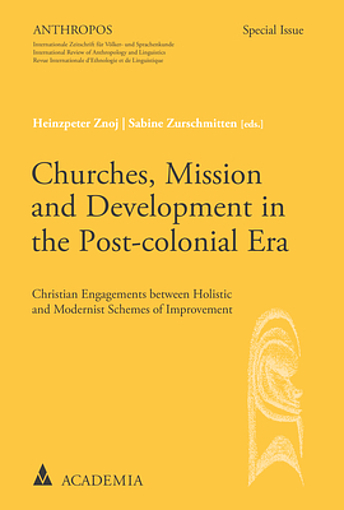englischHow is it that the Catholic and Protestant churches, which had already demanded sustainable development in the countries of the South in the 1960s, today predominantly support the technocratic development plans of the governments there? This special volume explores this apparent paradox through theological, historical and ethnographic studies. They provide insights into the theological foundations of church development policy and show how on its basis the resolutions of the Second Vatican Council and the World Council of Churches at the end of the 1960s demanded alternatives to modernist, neo-colonial development. Several contributions on Indonesia highlight the tensions between the development policy convictions of individual church actors and the closely state-controlled churches. Against this background it becomes clear to what extent the secular commitment of the churches is marked by real political constraints.
With contributions by
Heinzpeter Znoj, Sabine Zurschmitten, Cyprianus Jehan Paju Dale, Claudia Hoffmann, Noëmi Rui, Barbara Miller, Maria Hughes
Wie kommt es, dass die katholischen und protestantischen Kirchen, welche schon in den 1960er Jahren eine nachhaltige Entwicklung in den Ländern des Südens gefordert hatten, heute vorwiegend die technokratischen Entwicklungspläne der dortigen Regierungen unterstützen? Der vorliegende Sonderband ergründet anhand von theologischen, historischen und ethnographischen Studien dieses scheinbare Paradox. Sie geben Einblicke in die theologischen Grundlagen der kirchlichen Entwicklungspolitik und zeigen auf, wie auf deren Grundlage die Resolutionen des zweiten Vaticanums und des Weltkirchenrats Ende der 1960er Jahre Alternativen zur modernistischen, neokolonialen Entwicklung forderten. Mehrere Beiträge zu Indonesien heben die Spannungen zwischen den entwicklungspolitischen Überzeugungen einzelner kirchlicher Akteure und den staatlich eng kontrollierten Kirchen hervor. Vor diesem Hintergrund wird deutlich, wie sehr das weltliche Engagement der Kirchen von realpolitischen Zwängen geprägt wird.
Mit Beiträgen von
Heinzpeter Znoj, Sabine Zurschmitten, Cyprianus Jehan Paju Dale, Claudia Hoffmann, Noëmi Rui, Barbara Miller, Maria Hughes
- Kirchengeschichte
- Missionswissenschaft
- Postkolonialismus
- Christentum
- Kulturanthropologie
- Religion
- Kolonialreiche
- Missiology
- Postcolonialism
- Anthropology
- Christianity
- Church development policy
- Glaube
- Realpolitik
- Indonesien
- churches and development
- Christian engagements in development
- anthropology of Christianity
- post-colonial history
- Indonesia
- West Papua
- Flores
- Zimbabwe
- Christian mission
- World Council of Churches


